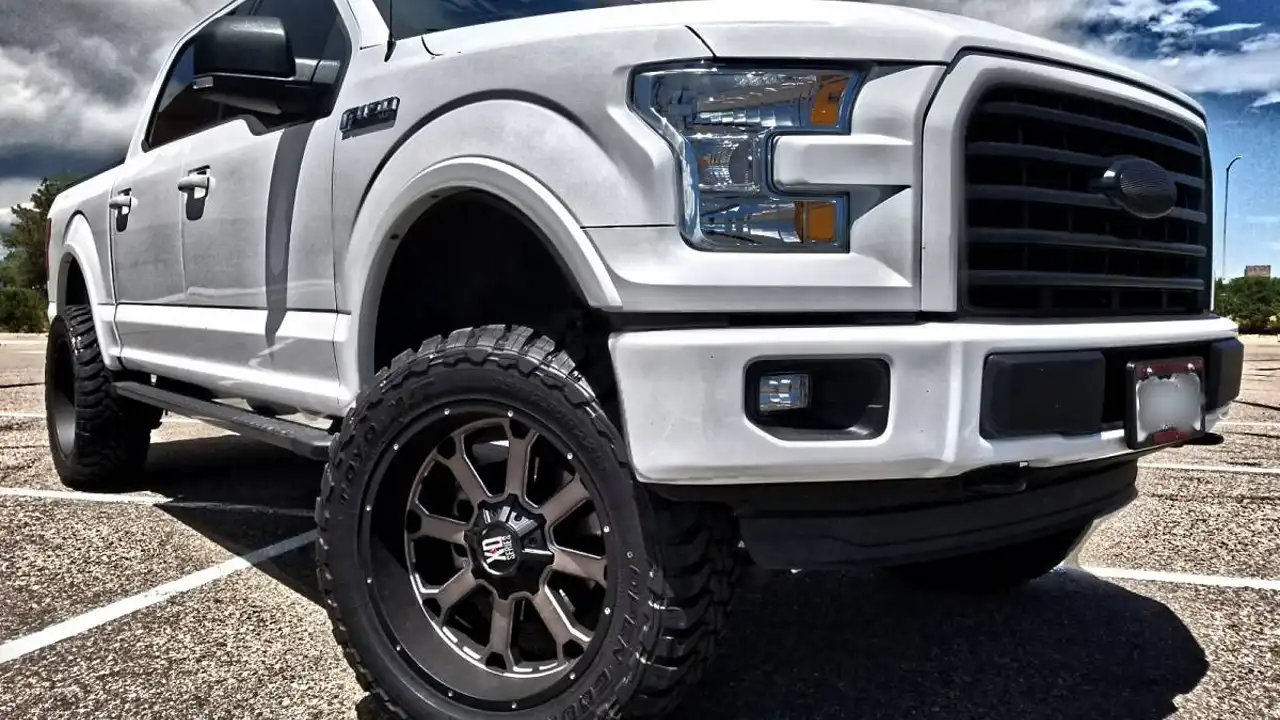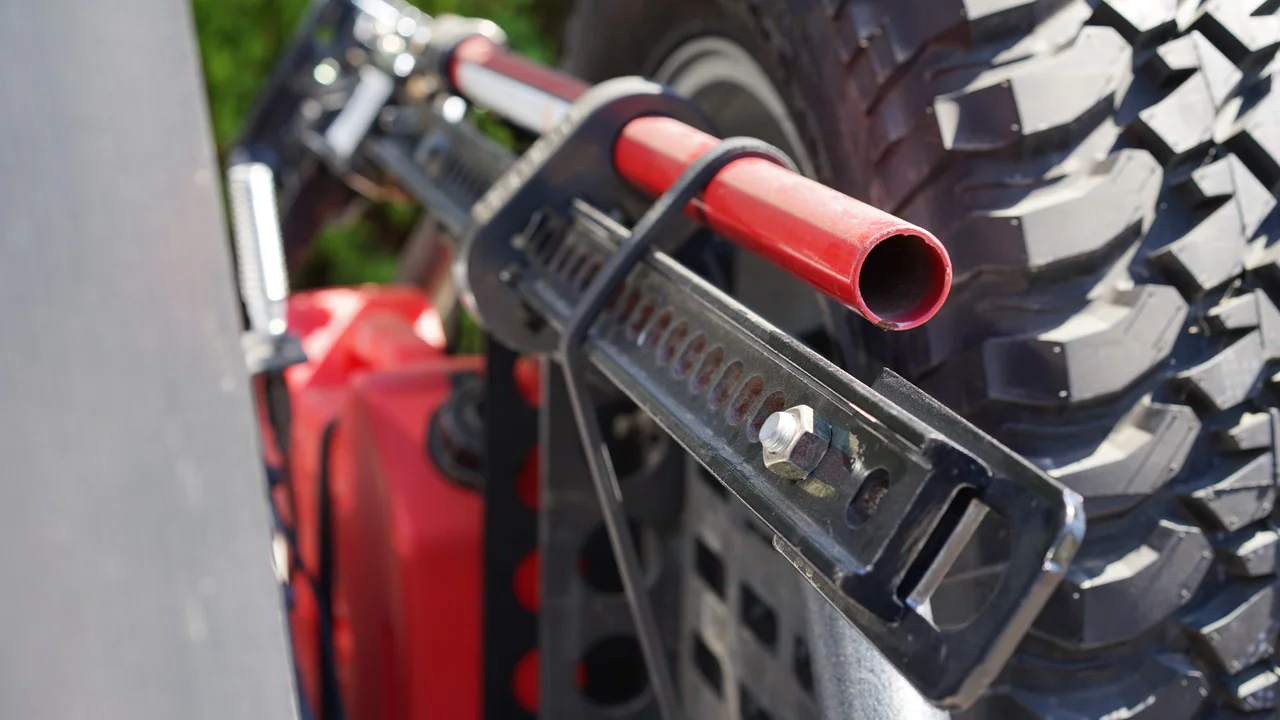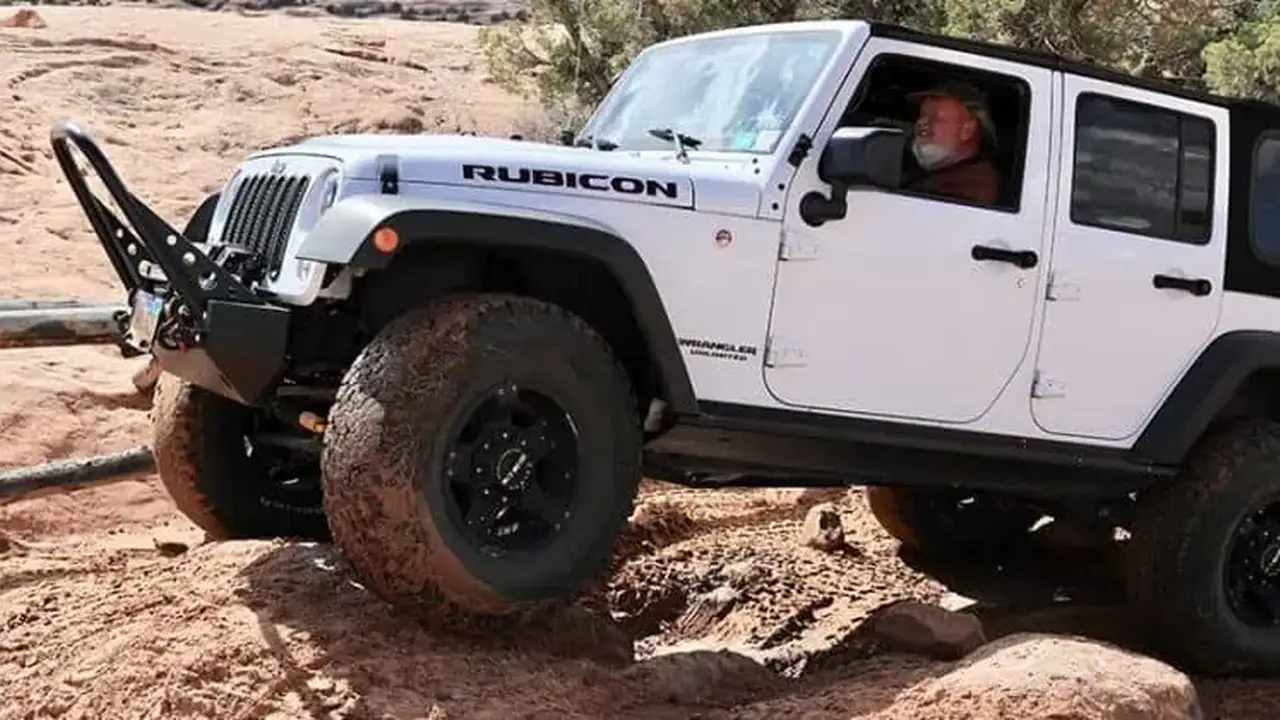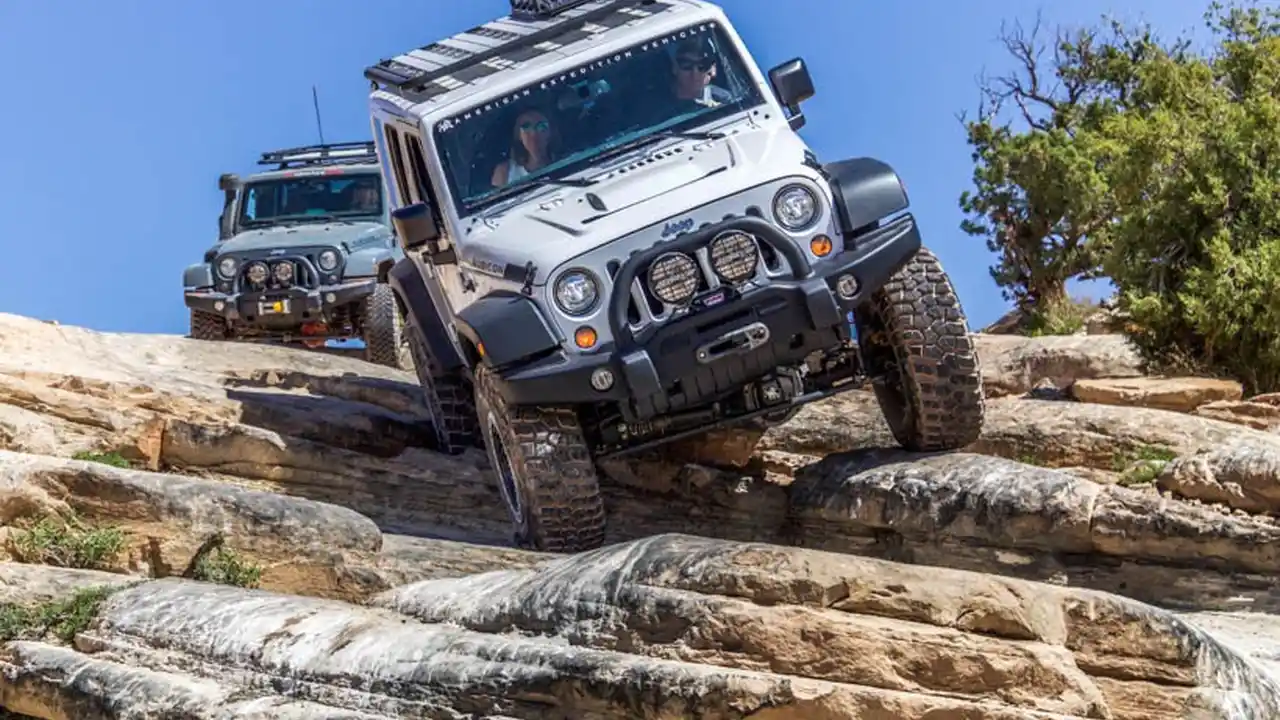Steel Bumpers vs. Aluminum Bumpers: Which is Stronger?
Protect your vehicle from rocks and obstacles with rock sliders. We review and compare the 7 best rock sliders for Jeeps and trucks. Find the perfect sliders for your needs and conquer challenging trails. Enhance your off-road adventures with our expert recommendations.
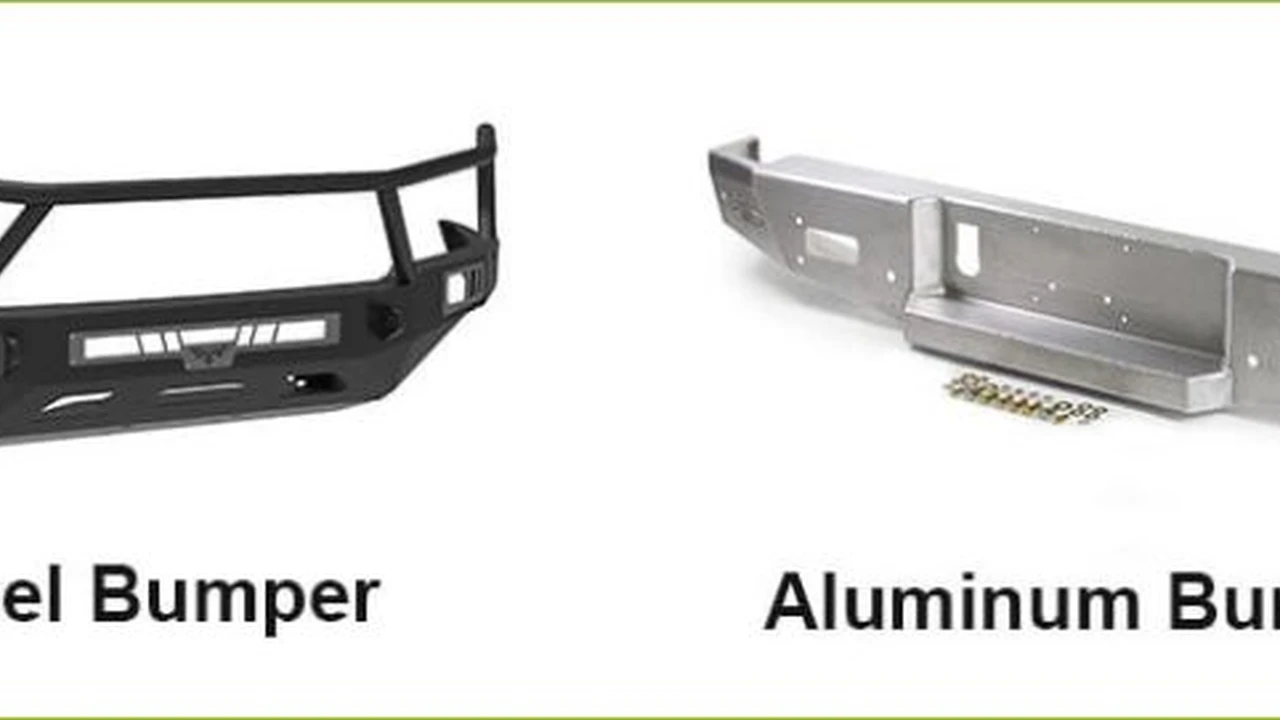
Alright, let's dive into the age-old debate: steel bumpers versus aluminum bumpers. If you're serious about off-roading, you know a good bumper is more than just a pretty face. It's crucial protection for your rig, especially when tackling those gnarly trails. Choosing the right material can make or break your off-road experience, so let's get into the nitty-gritty.
Why Upgrade Your Bumper The Importance of Off Road Protection
Before we even compare materials, let's talk about why you'd want to upgrade your bumper in the first place. Stock bumpers are often flimsy, designed more for aesthetics and minor fender-benders than serious off-road abuse. They typically offer minimal protection against rocks, trees, and other trail hazards. An aftermarket bumper, on the other hand, is built tough to shield your vehicle's vital components, like the radiator, headlights, and even the engine.
Think of it this way: your bumper is the first line of defense. It absorbs impacts, prevents serious damage, and allows you to keep moving. Without a sturdy bumper, a simple scrape against a rock could turn into a costly repair or even leave you stranded.
Steel Bumpers Strength Durability and Weight Considerations
Steel bumpers are the classic choice for a reason: they're incredibly strong. Steel has a high tensile strength, meaning it can withstand a lot of force before bending or breaking. This makes steel bumpers ideal for heavy-duty off-roading, where impacts are inevitable.
Pros of Steel Bumpers
- Unmatched Strength: Steel can take a serious beating. It's less likely to dent or deform under heavy impact.
- Repairability: Steel is relatively easy to weld and repair if it does get damaged. A skilled welder can often fix a bent or cracked steel bumper, extending its lifespan.
- Cost-Effective: Generally, steel bumpers are more affordable than aluminum bumpers, making them a budget-friendly option.
- Winch Compatibility: Steel bumpers are often designed with integrated winch mounts, making them a convenient choice for those who need recovery capabilities.
Cons of Steel Bumpers
- Heavy Weight: Steel is significantly heavier than aluminum. This extra weight can negatively impact your vehicle's fuel economy, handling, and suspension performance.
- Rust: Steel is susceptible to rust, especially in wet or salty environments. Regular maintenance, such as painting or powder coating, is necessary to prevent corrosion.
Example Steel Bumpers and Pricing
Let's look at some specific steel bumpers and their prices (prices are approximate and may vary):
- Smittybilt XRC Gen2 Front Bumper: A popular choice for Jeep Wranglers, known for its aggressive look and winch compatibility. Price: $600-$800
- ARB Deluxe Bull Bar: A heavy-duty bumper designed for various trucks and SUVs, offering excellent protection and integrated lighting options. Price: $1200-$1500
- Rough Country Front LED Bumper: A more budget friendly option that still provides great protection, and includes integrated LED lights. Price: $400-$600
Aluminum Bumpers Lightweight Performance and Corrosion Resistance
Aluminum bumpers are gaining popularity, especially among those who prioritize weight savings and performance. Aluminum is much lighter than steel, which can significantly improve your vehicle's handling and fuel economy. However, aluminum is not as strong as steel, so it's important to choose a high-quality aluminum bumper designed for off-road use.
Pros of Aluminum Bumpers
- Lightweight: Aluminum is significantly lighter than steel, reducing overall vehicle weight and improving fuel economy.
- Corrosion Resistance: Aluminum is naturally resistant to rust and corrosion, making it ideal for wet or salty environments.
- Performance: The lighter weight of aluminum can improve your vehicle's handling, acceleration, and braking performance.
Cons of Aluminum Bumpers
- Lower Strength: Aluminum is not as strong as steel and is more likely to dent or deform under heavy impact.
- Higher Cost: Aluminum bumpers are generally more expensive than steel bumpers.
- Repair Difficulty: Aluminum is more difficult to weld and repair than steel, requiring specialized equipment and expertise.
Example Aluminum Bumpers and Pricing
Here are some examples of aluminum bumpers and their prices (prices are approximate and may vary):
- Fab Fours Aluminum Stubby Bumper: A lightweight and stylish bumper for Jeep Wranglers, offering excellent clearance and a winch mount. Price: $1000-$1300
- Addictive Desert Designs Stealth Fighter Front Bumper: A high-end aluminum bumper designed for trucks and SUVs, offering aggressive styling and integrated lighting options. Price: $1500-$2000
- LOD Destroyer Series Aluminum Shorty Bumper: This bumper provides great protection and winch capabilities in a lightweight package. Price: $900-$1200
Usage Scenarios When to Choose Steel vs Aluminum Bumpers
The best choice between steel and aluminum depends on your specific needs and driving style. Here's a breakdown of when each material is most appropriate:
Choose Steel If
- You frequently encounter challenging trails with rocks and obstacles.
- You need maximum protection for your vehicle's front end.
- You plan to use a winch frequently.
- You're on a budget.
- Weight is not a primary concern.
Choose Aluminum If
- You prioritize weight savings and improved handling.
- You live in a wet or salty environment.
- You're willing to spend more for a lighter bumper.
- You primarily encounter moderate off-road conditions.
Product Comparisons A Detailed Look at Specific Bumper Models
Let's compare a couple of specific bumper models to highlight the differences between steel and aluminum:
Smittybilt XRC Gen2 (Steel) vs. Fab Fours Aluminum Stubby
- Smittybilt XRC Gen2 (Steel): This bumper is known for its rugged construction, winch compatibility, and relatively affordable price. It's a great choice for those who need maximum protection and don't mind the extra weight.
- Fab Fours Aluminum Stubby: This bumper offers a sleek design, excellent clearance, and significant weight savings. It's ideal for those who prioritize performance and want to reduce the overall weight of their vehicle.
- Comparison: The Smittybilt is tougher and cheaper, while the Fab Fours is lighter and more stylish. Your choice depends on your priorities.
ARB Deluxe Bull Bar (Steel) vs. Addictive Desert Designs Stealth Fighter (Aluminum)
- ARB Deluxe Bull Bar (Steel): This bumper is a heavy-duty option designed for serious off-road use. It offers excellent protection, integrated lighting options, and a winch mount.
- Addictive Desert Designs Stealth Fighter (Aluminum): This bumper is a high-end option with an aggressive design and integrated lighting. It's lighter than the ARB but also more expensive.
- Comparison: The ARB is built for extreme conditions and offers unmatched protection, while the ADD is focused on style and performance.
Installation and Maintenance Tips for Bumpers
No matter which type of bumper you choose, proper installation and maintenance are essential for ensuring its longevity and performance.
Installation Tips
- Follow the manufacturer's instructions carefully.
- Use the correct tools and hardware.
- Ensure all bolts are tightened to the proper torque specifications.
- Consider professional installation if you're not comfortable working on your vehicle.
Maintenance Tips
- Regularly inspect your bumper for damage, such as dents, cracks, or rust.
- Clean your bumper with soap and water to remove dirt and debris.
- Touch up any scratches or chips in the paint or powder coating to prevent rust.
- Apply a rust inhibitor to steel bumpers, especially in wet or salty environments.
Final Thoughts Making the Right Choice for Your Off Road Rig
Ultimately, the best choice between steel and aluminum bumpers depends on your individual needs and priorities. Consider your driving style, the types of trails you frequent, your budget, and your desired performance characteristics. With a little research and careful consideration, you can choose the perfect bumper to protect your vehicle and enhance your off-road adventures. So get out there, explore the trails, and enjoy the ride!
:max_bytes(150000):strip_icc()/277019-baked-pork-chops-with-cream-of-mushroom-soup-DDMFS-beauty-4x3-BG-7505-5762b731cf30447d9cbbbbbf387beafa.jpg)



